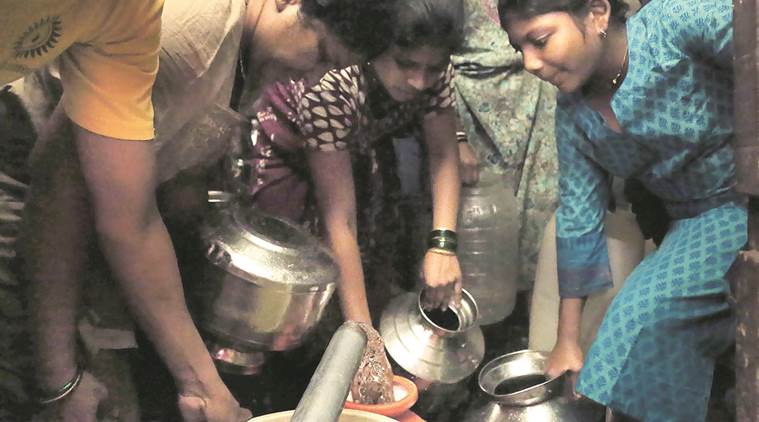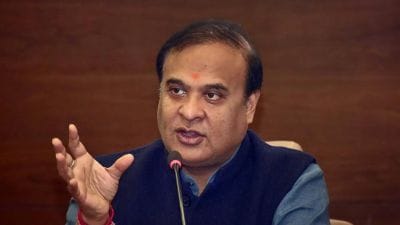Stay updated with the latest - Click here to follow us on Instagram
Maharashtra govt makes reuse of toilet water mandatory for cities
The policy is to reuse the treated wastewater to cool thermal power plants, serve industrial estates, and other non-potable purposes.
 Representational Image.
Representational Image.
WALK THROUGH an industrial belt in Maharashtra in the future, and you may see your toilet water at work. To squeeze more out of the water that spins down our drain, Maharashtra has adopted a policy that makes municipalities responsible for recycling and reusing wastewater.
The Devendra Fadnavis cabinet sanctioned the policy Wednesday. “The initiative marks the first time when recycled water is being reused for industrial uses in the public sector,” said Manisha Patankar-Mhaiskar, Principal Secretary (Urban Development-II). Maharashtra, India’s most urbanised state, has been criticised in the past for letting untreated sewage or inadequately treated sewage deplete quality of fresh water reserves.
The policy is to reuse the treated wastewater to cool thermal power plants, serve industrial estates, and other non-potable purposes. Although some developed countries also use treated wastewater to replenish drinking water supplies, this option is not being considered for now, confirmed sources.
On Wednesday, the government also spelt out its first target. It desires reuse of at least 6,888 million litres of daily sewage generated across 71 urban agglomerates by 2020. “Of this, about 4,738 million litres daily already undergoes secondary-level treatment of affluent. Similar treatment plants are on the anvil to cater to another 2,150 mld of sewage,” said Mhaiskar.
Making wastewater reuse a “primary responsibility” of the municipalities, the cabinet on Wednesday directed the urban bodies in these 71 belts to draft an action plan within a year, and commission these plants within the next three years. For the economic viability of the projects, the cabinet mandated that power plants and industrial estates run by the Maharashtra Industrial Development Corporation (MIDC) in areas near the municipalities to utilise the recycled supplies for non-potable uses, once they were made available. “Dam water supplies for all such industrial areas and power plants located within 50 km of the municipality would be withdrawn for non-potable uses, once the treated wastewater is available,” added Mhaiskar.
The Centre has already adopted one such policy for power plants. Treated water could also be used by the railways, other bulk users, and for operating farm pumps.
A 40 MLD treatment plant, being set up by the Navi Mumbai civic body, is slated to be the first such facility. As reported previously in The Indian Express, the plan is to supply the treated water to MIDC areas in Vashi, Airoli, and Koparkhairane, whose fresh water reserves would be diverted for domestic uses to families belonging to 27 villages newly taken up for urbanisation in the nearby Kalyan Dombivali municipality. Similarly, a 70-MLD treatment plant is proposed in Solapur, which would cater to cooling water requirement of a National Thermal Power Corporation’s plant. Another 40-MLD plant is being planned in Chandrapur.
While the financial model of bearing the capital cost for setting up the treatment plants through public funding has been approved, the government has also permitted a private funding model. Further in view of the tight financial position of the state’s economy, the cabinet on Wednesday set up a committee under Additional Chief Secretary (Finance), which will review proposals where government funding was needed. Meanwhile, the Urban Development department also entered into MoUs with IIT-B and the National Environment Engineering Research Institute for pilots on non-conventional treatment options for sewage treatment.
Meanwhile, to expedite completion of 140 pending water supply and sanitation projects, taken up by urban bodies using central grants, the government has eased gap-funding norms.







